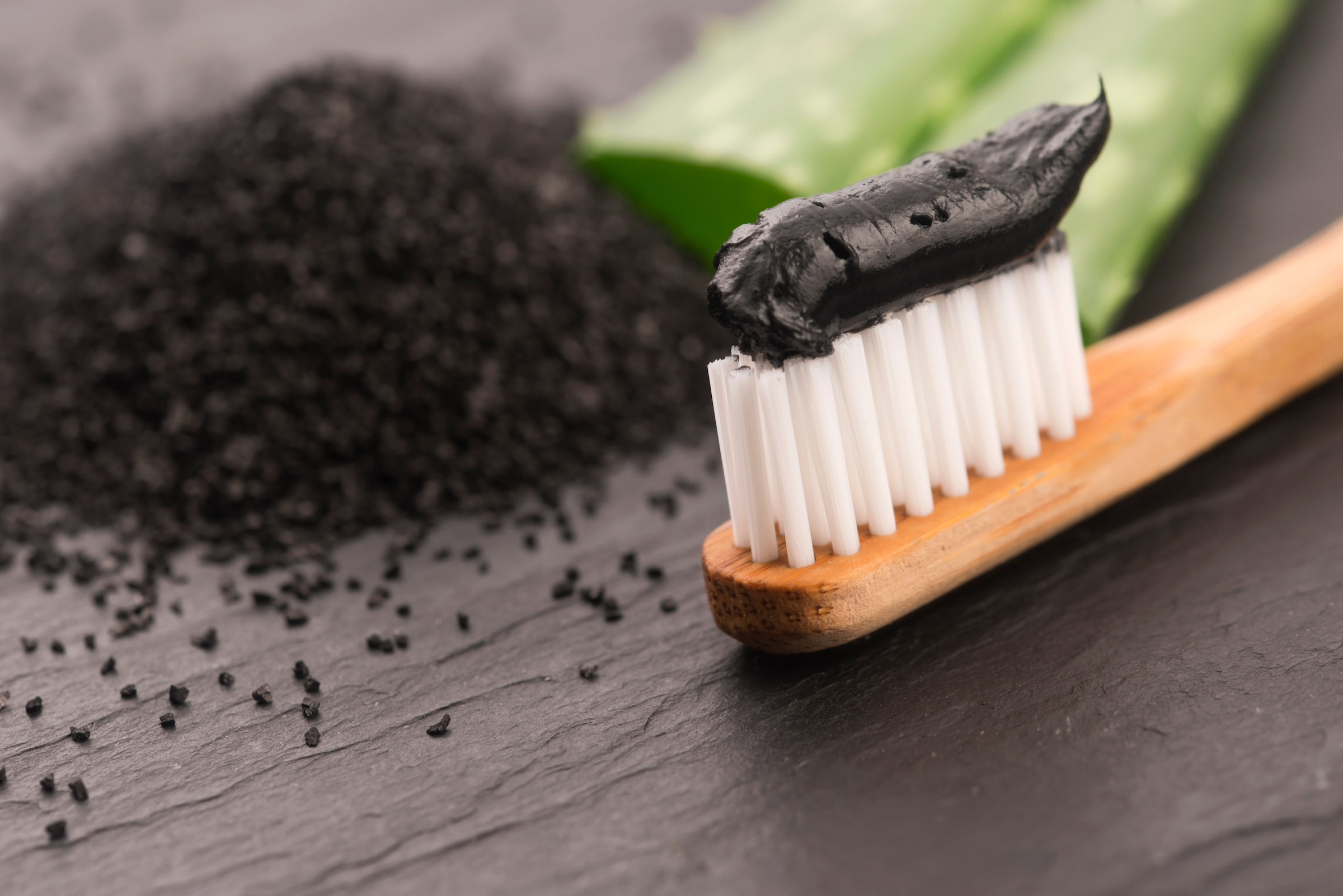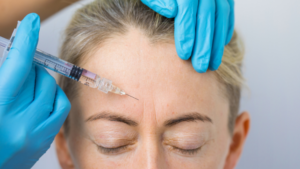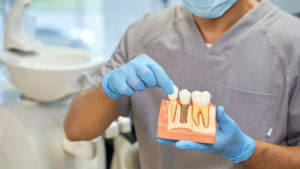Tooth whitening is a branch of cosmetic dentistry that has been riddled with scammy products down the years.
Although dentist made teeth whitening trays, and laser activated tooth whitening certainly do lighten the colour of your teeth, the same cannot be said for many over the counter tooth whitening products. In fact only licensed dentists can sell tooth whitening products which contain over 0.1% hydrogen peroxide, the active ingredient that actually whitens your teeth.
This means that any hydrogen peroxide based product that you buy from a pharmacist or beautician is almost certainly a placebo.
However a new home-tooth-whitening product has emerged, being proclaimed over social media as a genuine alternative to cosmetic dentistry.
Rather than using the bleaching effect of hydrogen peroxide, the active ingredient in these products is something a lot more commonplace: charcoal.
How do charcoal based tooth whitening products work?

Charcoal tooth whitening products can be brought as a powder or paste
Charcoal tooth whitening products usually take the form of a paste, which is either used in the same way as toothpaste, or applied onto the teeth and left there for a period of time.
The charcoal is thought to whiten teeth in two ways.
1) Firstly, the fineness of the charcoal in these charcoal products makes these products very abrasive. The abrasiveness of these products, especially when scrubbed onto teeth helps dislodge staining and bacteria. Some proponents of charcoal based tooth-whitening even claim that these products can remove tartar. Such claims are, however, unproven and highly improbable given that the only known way of removing tartar is manual scraping with specialised dental instruments.
2) Charcoal is thought to be super absorbent, and can therefore absorb the causes of staining from the surface of the tooth. Charcoal toothpaste has been said to do this more effectively than regular toothpastes.
Do these charcoal products actually whiten your teeth?
There have been mixed reviews regarding the effectiveness of charcoal based tooth whitening products. If you go on Youtube, for instance, you can see videos showing miraculous results from using these products. Such videos can, however, be easily fabricated. They also often have links to where to buy such products in their descriptions, which should raise further suspicion about their accuracy.
Clinical studies into the effectiveness of charcoal tooth whitening products have demonstrated no significant tooth whitening effect over and above regular toothpastes. Regular toothpastes also contain abrasive agents which have the same scrubbing effect that charcoal has (thus their grittiness in the mouth). It would therefore seem that this is the only way that charcoal products whiten your teeth is through the same means that regular toothpaste does.
As charcoal toothpastes typically cost 5 times the price of regular toothpaste, it is not an option that we would recommend.
Are charcoal tooth-whitening products harmful to your teeth?
Although being a waste of money is bad enough, it would still be important to know whether charcoal tooth whitening products are doing harm to your teeth.
Considering that these products purportedly work by scrubbing off and absorbing stains and bacteria, there is every risk that charcoal toothpaste may be overly abrasive. This can scrub off tooth enamel and lead to incredibly painful sensitive teeth.
Although it is unknown whether charcoal tooth whitening products does this kind of harm, we believe that as it has no more benefit than regular toothpaste it is better to stick to the latter. Regular toothpaste is clinically proven to strengthen your teeth and not cause any harm.
So in conclusion, there is little to no evidence that charcoal tooth whitening products actually whiten your teeth, whereas their harm potential is also unknown. We would not recommend using it at all, mainly because they are a waste of time and money. If you would like a shinier smile, we would recommend regular hygiene visits or a course of tooth whitening.
While charcoal-based products are popular, clinical studies show they offer no significant advantage over regular toothpaste. Charcoal can be abrasive, potentially damaging enamel and causing sensitivity. The article advises against using these products, recommending professional dental treatments like tooth whitening or regular hygiene appointments for safer and proven results.




